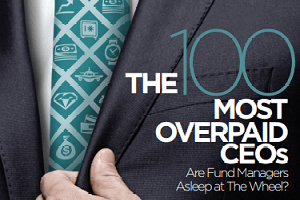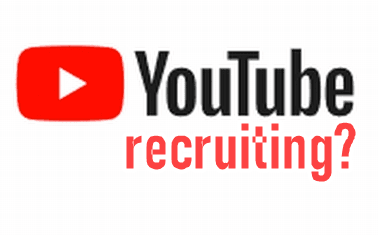In the May 21, 2019 Ask The Headhunter Newsletter a reader worries down-hiring is an irreversible catastrophe.
Question
 I joined my company six years ago mainly because every manager and employee I met impressed me. For the first couple of years, we were wildly successful. I’m convinced it was because of the people. As a manager, I am careful to hire only people who match that caliber. But things changed. A mediocre vice president was hired who brought in two managers who were not technically competent. They in turn hired weak staff. Customers started complaining.
I joined my company six years ago mainly because every manager and employee I met impressed me. For the first couple of years, we were wildly successful. I’m convinced it was because of the people. As a manager, I am careful to hire only people who match that caliber. But things changed. A mediocre vice president was hired who brought in two managers who were not technically competent. They in turn hired weak staff. Customers started complaining.
Now my team and I spend most of our time putting out fires. Recently the first two people I hired quit in disgust. It’s hard to keep others who report to me motivated. I was asked to do a presentation to our board of directors and I was blunt with them. Two weeks later I was offered the job of CEO. I’m not sure I want it. Is the damage reversible or should I move on?
Nick’s Reply
Strong managers work to build the success of a business by hiring the best people. Insecure managers struggle to preserve their positions in the pecking order by “down-hiring.” That is, they hire weak employees who will not threaten their status.
A people hire A people, but B people will hire C people. When enough B and C people fill critical roles, A people leave. That VP you mentioned — and the weak managers she hired — are bringing down your company because its best people won’t tolerate it.
Like a virus, one B person can devastate your entire organization. I think you need to decide whether you can turn the company’s management team and staff around. That’s a tall order.
Rebuilding by hiring and firing
Think about the critical path: While you can try to purge your company of B and C people, the real challenge is keeping A people focused on hiring more A people.
Companies routinely delegate the hiring process downward to managers and staff who have progressively less skin in the game. If you become CEO, you need to take complete control of hiring until you have re-set the standard. You need to eliminate every B and C manager and replace them with A managers — then ride them to re-build the organization. (Eliminate might mean mentoring and training B’s and C’s into A’s, but that depends on the resources at your disposal and the time frame in which you must pull this off.)
Is this possible and worth attempting? I can’t tell you that. You have to make the judgment. I agree that you need to think hard about accepting the CEO role. I’ll try to offer you some thoughts that might be helpful, with the disclaimer that I am not a management expert. My suggestions are based on what I’ve seen and heard in many years of helping companies hire. I expect lively debate from readers about this Q&A!
Never down-hire
Always try to hire people better than yourself, and reward your managers for doing the same.
Your first problem may be in your human resources department. HR often fails to ensure managers are up-hiring. It lets managers down-hire. That’s no strategy for any company. HR’s job is to up the ante and to raise the standards of hiring.
Many HR departments routinely reject what they term “over-qualified” job candidates, fearing these folks will become quickly dissatisfied with the job and the pay and quit when something better comes along.
This is corporate suicide. Turning away “over-qualified” job applicants is a tacit admission that a company is already infected with B managers who don’t know how to profitably apply the extra skills that the most advanced job candidates offer. Worse, it reveals that a company is not a learning organization — it does not advance itself by adding and developing better talent.
A company’s response to “over-qualified” candidates should be glee. It should find the money and tweak the job so the company can benefit from the extraordinary good luck it has to hire extraordinarily qualified talent.
Down-hiring results in more B and C people in the ranks. The objective must always be the opposite.
Judge managers on the quality of their hires
If managers can’t find, hire and retain A people, fire the managers. (Don’t blame HR alone. It’s up to managers to manage hiring. HR is only a tool.)
You can tell quickly which managers are A people: They build teams filled with A people who meet challenges and deadlines with smiles on their faces. (See Talent Crisis: Managers who don’t recruit.) There’s no serious dissent among them because they all respect one another, their work, and their bosses.
Perhaps most obvious: Your best managers are not afraid to hire people who are smarter or more talented than themselves. They manage talent; they are not threatened by it.
Sever the rotting B manager, or lose the whole body. In this case, the head can be grown back if you have one A person who can take control.
Reward performance quickly
As you’ve seen in your company, when you let B people hire C people, your A people will leave. A people don’t stick around B or C companies. That’s the disaster of down-hiring.
When you bring an A person on board, you must reward them. The most effective reward you can give an A person is more A people to work with. (You’re the best example. The presence of A people inspired you to join up.) The next important reward is authority, which an A person will use to hire more A people and to weed out B and C people.
But don’t forget that another critical reward is money. A people can always get more money, but will they get it from you, or from a competitor? Feed your A people, and they will build an A company to ensure your success along with their own. (See Why employers should make higher job offers. My HR buddy Suzanne Lucas agrees.)
Can you fix it?
It’s a good sign that your board listened to the blunt truth you shared and trusts you to run the company. You need to make sure the board will back that up and fully support you. I’d ask to meet with a few of the key board members individually. Meet each for a working breakfast. Satisfy yourself that this request to turn the company around is real. Then have similar meetings with your best A managers and A employees. Ask for their judgments, advice and support. Only then would I make the decision you face.
Do I think up-hiring can fix a catastrophe caused in part by down-hiring? It matters only what you and your prospective new team think. I wish you the best.
Is my taxonomy of A, B and C people legitimate? Are B and C people really the problem this prospective CEO faces? Do you think it’s possible to turn this company around?
: :




 I am an executive at a large U.S. bank. I was approached by a headhunter and have had serious and positive discussions with a company he represents. We were at the next stage of me speaking with the CEO of the company. However, it turns out that the company is a business client of my bank and the CEO of the company is good friends with my boss. On account of this, the CEO is not comfortable meeting with me. The headhunter informed me that the CEO has asked me to resign or notify my boss of my intention to resign before he will meet with me and resume discussions. While they have indicated that they would then “fast track” the process immediately after that, it’s not a guaranteed offer. This seems absurd to me. The headhunter tells me this is not unusual at my high level, but I have never heard of such a practice. What are your thoughts?
I am an executive at a large U.S. bank. I was approached by a headhunter and have had serious and positive discussions with a company he represents. We were at the next stage of me speaking with the CEO of the company. However, it turns out that the company is a business client of my bank and the CEO of the company is good friends with my boss. On account of this, the CEO is not comfortable meeting with me. The headhunter informed me that the CEO has asked me to resign or notify my boss of my intention to resign before he will meet with me and resume discussions. While they have indicated that they would then “fast track” the process immediately after that, it’s not a guaranteed offer. This seems absurd to me. The headhunter tells me this is not unusual at my high level, but I have never heard of such a practice. What are your thoughts?

 I joined my company six years ago mainly because every manager and employee I met impressed me. For the first couple of years, we were wildly successful. I’m convinced it was because of the people. As a manager, I am careful to hire only people who match that caliber. But things changed. A mediocre vice president was hired who brought in two managers who were not technically competent. They in turn hired weak staff. Customers started complaining.
I joined my company six years ago mainly because every manager and employee I met impressed me. For the first couple of years, we were wildly successful. I’m convinced it was because of the people. As a manager, I am careful to hire only people who match that caliber. But things changed. A mediocre vice president was hired who brought in two managers who were not technically competent. They in turn hired weak staff. Customers started complaining. I just read an article where a CEO warns that it’s unethical and dishonest to keep interviewing after you’ve accepted a job offer. “It’s not cool.” He calls it lying and says you’re just damaging yourself! Moreover, you’re causing damage to the company because it stopped recruiting after it hired you, and having to restart recruiting will cost it a lot of time and money. So you should behave with “class and grace.” Then he drops the bomb: It’s “all Millennials” doing this — ghosting employers. (I’m 29 years old so I guess he’s talking to me.) Is it so wrong to keep interviewing or to take a better offer if it comes along?
I just read an article where a CEO warns that it’s unethical and dishonest to keep interviewing after you’ve accepted a job offer. “It’s not cool.” He calls it lying and says you’re just damaging yourself! Moreover, you’re causing damage to the company because it stopped recruiting after it hired you, and having to restart recruiting will cost it a lot of time and money. So you should behave with “class and grace.” Then he drops the bomb: It’s “all Millennials” doing this — ghosting employers. (I’m 29 years old so I guess he’s talking to me.) Is it so wrong to keep interviewing or to take a better offer if it comes along? In the
In the  First, a little background.
First, a little background. When they’re job hunting, people rationalize. They’re afraid they won’t get picked, so they tolerate all kinds of niggling abuse. Making someone jump through hoops — online forms, silly rules about when references are due, eating dust when HR serves it — is not right, smart, or good business. But job seekers will probably jump through hoops because they want a shot at a job. Or that’s what they tell themselves. It’s for a shot at the job. So they tolerate demeaning and meaningless demands.
When they’re job hunting, people rationalize. They’re afraid they won’t get picked, so they tolerate all kinds of niggling abuse. Making someone jump through hoops — online forms, silly rules about when references are due, eating dust when HR serves it — is not right, smart, or good business. But job seekers will probably jump through hoops because they want a shot at a job. Or that’s what they tell themselves. It’s for a shot at the job. So they tolerate demeaning and meaningless demands. I recently got a very nice thank-you note from an applicant to whom I had sent a no-thank-you — that is, a rejection letter. She seemed surprised to hear from me. As a manager, it has always been my practice to reply to every applicant either by letter or e-mail. I’ve been criticized for the time it takes. However, I believe that if someone takes the time to express interest in your company, the least you can do is tell them “no, thank you” if you don’t want them.
I recently got a very nice thank-you note from an applicant to whom I had sent a no-thank-you — that is, a rejection letter. She seemed surprised to hear from me. As a manager, it has always been my practice to reply to every applicant either by letter or e-mail. I’ve been criticized for the time it takes. However, I believe that if someone takes the time to express interest in your company, the least you can do is tell them “no, thank you” if you don’t want them. It’s easy to be rude to a resume; but you can’t hire resumes. Top-notch workers in your field will not stand for rudeness. Talk to all the people you pissed off when you ignored their applications, and you will learn what rude is. Rude is awakening to find your company’s professional reputation has been trashed by good applicants who found out you’re not as good as they are. (See
It’s easy to be rude to a resume; but you can’t hire resumes. Top-notch workers in your field will not stand for rudeness. Talk to all the people you pissed off when you ignored their applications, and you will learn what rude is. Rude is awakening to find your company’s professional reputation has been trashed by good applicants who found out you’re not as good as they are. (See 
